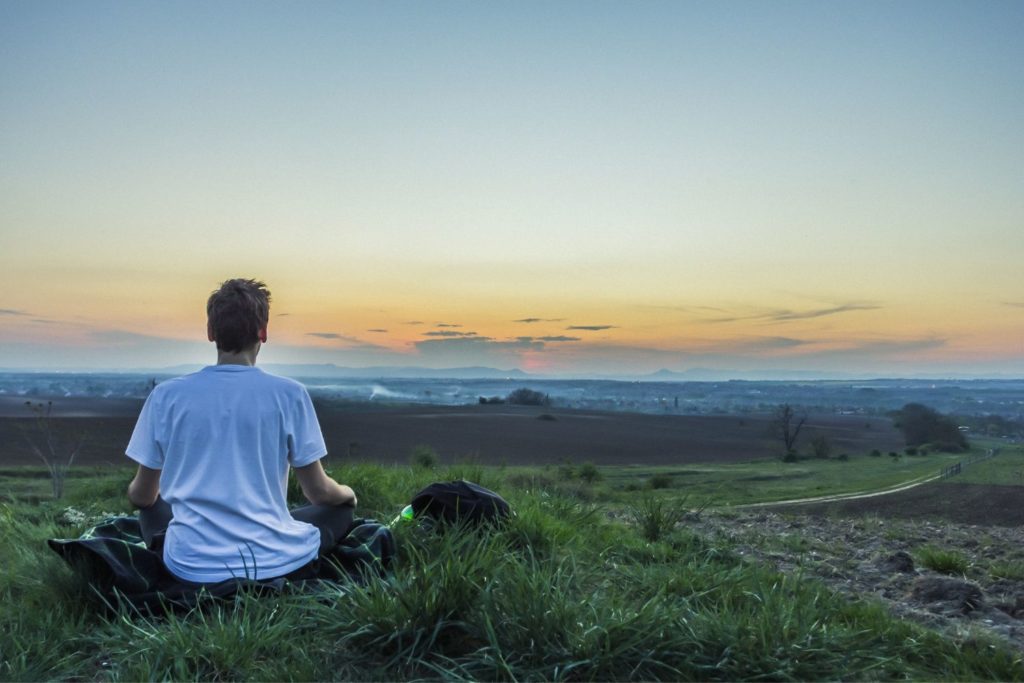If you’re feeling overwhelmed by the chaos of modern life and seeking a way to find inner peace, you’ve come to the right place. In this beginner’s guide, we’ll explore the basics of meditation and mindfulness, and provide you with practical tips and techniques to help you incorporate these transformative practices into your daily life. Get ready to embark on a journey of self-discovery and stress reduction!
Understanding Meditation and Mindfulness Before we dive into the practice, let’s clarify what we mean by meditation and mindfulness. Meditation is a mental exercise that involves focusing your attention on a specific object, thought, or activity to achieve a mentally clear and emotionally calm state. Mindfulness, on the other hand, is the practice of being present and fully engaged in the current moment, without judgment. While meditation is often a formal practice, mindfulness can be cultivated throughout the day.
Benefits of Meditation and Mindfulness Incorporating meditation and mindfulness into your life can offer a multitude of benefits for your mental, emotional, and physical well-being. Some of these benefits include:
- Reduced stress and anxiety
- Improved focus and concentration
- Increased self-awareness and emotional regulation
- Enhanced creativity and problem-solving skills
- Greater sense of inner peace and overall well-being
Getting Started with Meditation Now that you understand the basics, let’s explore how to get started with your meditation practice.
Step 1: Find a Quiet Space
Choose a quiet, comfortable space where you can sit undisturbed for a few minutes. This can be a dedicated meditation room, a corner of your bedroom, or even a peaceful spot in nature.
Step 2: Get Comfortable
Find a comfortable seated position, either on a cushion or a chair. Keep your back straight, but not rigid, and allow your hands to rest gently on your knees or lap. Close your eyes or soften your gaze.
Step 3: Focus on Your Breath
Begin by simply noticing your breath. Feel the sensation of the air moving in and out of your nostrils or the rise and fall of your chest. If your mind starts to wander, gently redirect your attention back to your breath.
Step 4: Start Small
As a beginner, it’s important to start with short meditation sessions, even just a few minutes a day. Gradually increase the duration as you become more comfortable with the practice.
Step 5: Be Kind to Yourself
Remember, meditation is a practice, and it’s normal for your mind to wander. Don’t judge yourself or get discouraged. Simply acknowledge any thoughts that arise and gently return your focus to your breath.

Incorporating Mindfulness into Daily Life In addition to formal meditation practice, you can cultivate mindfulness throughout your day. Here are some tips to help you stay present and engaged in the moment:
- Practice mindful eating: Slow down and fully experience your meals, paying attention to the flavors, textures, and aromas of your food.
- Engage in mindful movement: Whether it’s yoga, tai chi, or simply walking, bring your full attention to your body and its movements.
- Perform daily tasks mindfully: From brushing your teeth to washing dishes, try to stay present and focused on the task at hand.
- Take mindful breaks: Throughout the day, pause for a few moments to take a few deep breaths and check in with yourself.
- Practice gratitude: Regularly reflect on the things you’re grateful for, big and small.
Tools and Resources As you continue your meditation and mindfulness journey, there are many tools and resources available to support your practice:
- Guided meditation apps: Apps like Headspace, Calm, or Insight Timer offer a wide variety of guided meditations for all levels.
- Mindfulness books: Explore books by renowned mindfulness teachers such as Jon Kabat-Zinn, Thich Nhat Hanh, or Eckhart Tolle.
- Meditation classes or retreats: Consider joining a local meditation group or attending a mindfulness retreat to deepen your practice and connect with like-minded individuals
Congratulations on taking the first step towards cultivating inner peace through meditation and mindfulness. By incorporating these practices into your daily life, you’ll be better equipped to navigate life’s challenges with greater clarity, resilience, and joy.
Remember, meditation and mindfulness are skills that develop over time. Be patient with yourself and celebrate the small victories along the way. With consistent practice, you’ll soon discover a profound sense of calm and presence that will transform your relationship with yourself and the world around you.

